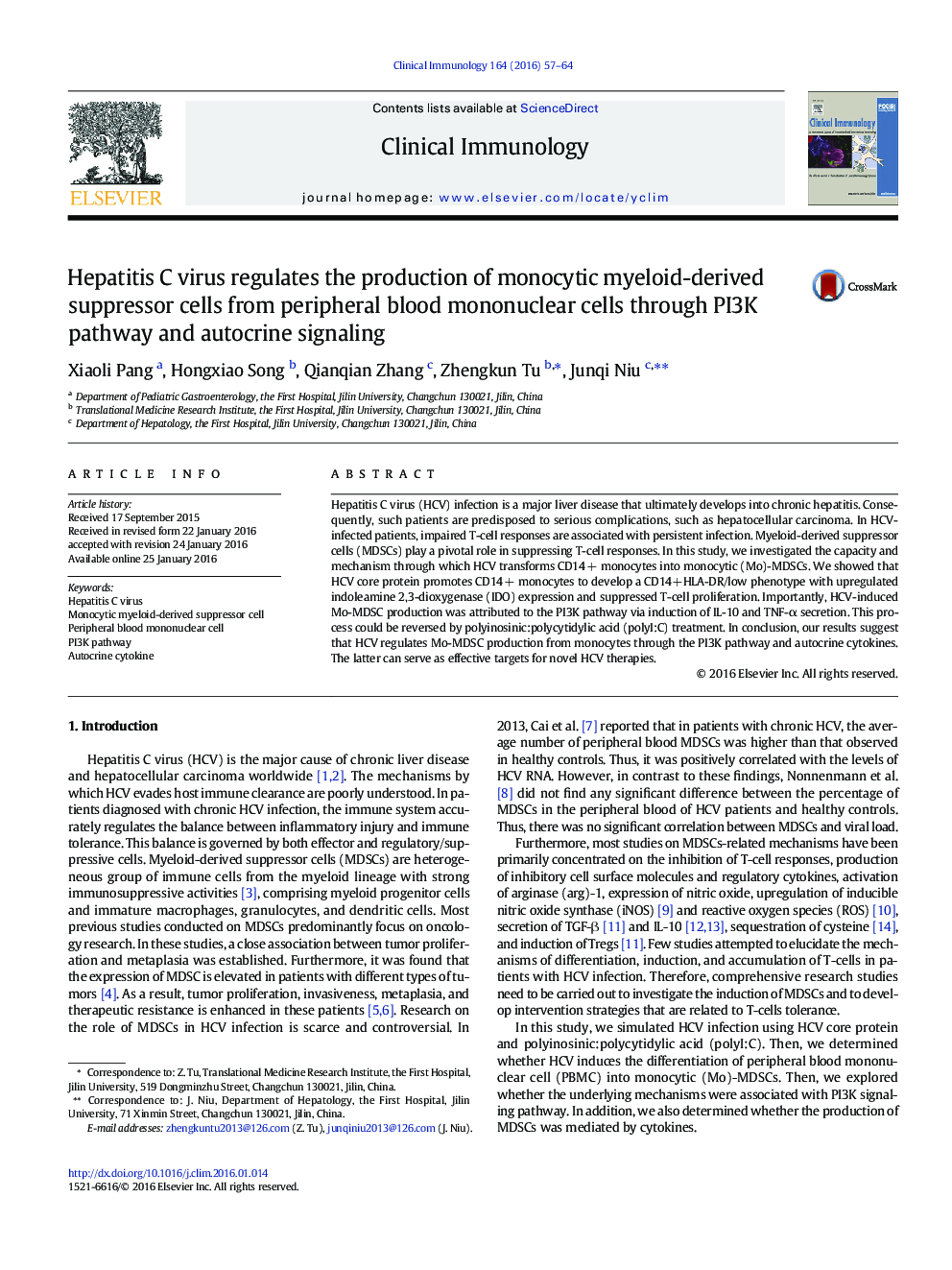| Article ID | Journal | Published Year | Pages | File Type |
|---|---|---|---|---|
| 6087048 | Clinical Immunology | 2016 | 8 Pages |
â¢Transformation of CD14 + monocytes into monocytic (Mo)-MDSCs by HCV was studied.â¢HCV-induced Mo-MDSC production is mediated by the PI3K pathway via IL-10 and TNF-α.â¢HCV regulates Mo-MDSC production from monocytes via the PI3K pathway.â¢HCV regulates Mo-MDSC production from monocytes via autocrine cytokines.â¢The PI3K pathway or cytokines may be effective targets for HCV therapies.
Hepatitis C virus (HCV) infection is a major liver disease that ultimately develops into chronic hepatitis. Consequently, such patients are predisposed to serious complications, such as hepatocellular carcinoma. In HCV-infected patients, impaired T-cell responses are associated with persistent infection. Myeloid-derived suppressor cells (MDSCs) play a pivotal role in suppressing T-cell responses. In this study, we investigated the capacity and mechanism through which HCV transforms CD14 + monocytes into monocytic (Mo)-MDSCs. We showed that HCV core protein promotes CD14 + monocytes to develop a CD14+HLA-DR/low phenotype with upregulated indoleamine 2,3-dioxygenase (IDO) expression and suppressed T-cell proliferation. Importantly, HCV-induced Mo-MDSC production was attributed to the PI3K pathway via induction of IL-10 and TNF-α secretion. This process could be reversed by polyinosinic:polycytidylic acid (polyI:C) treatment. In conclusion, our results suggest that HCV regulates Mo-MDSC production from monocytes through the PI3K pathway and autocrine cytokines. The latter can serve as effective targets for novel HCV therapies.
